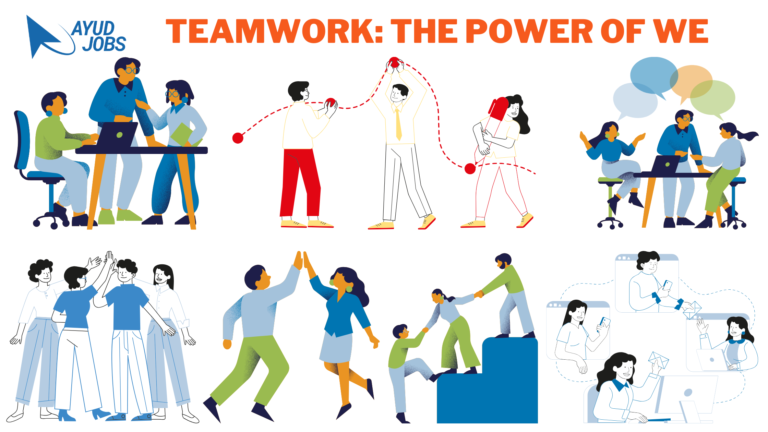Salary and Negotiation: Maximizing Your Earning Potential
Salary and Negotiation: Maximizing Your Earning Potential
Negotiating your salary can be one of the most challenging aspects of your career. However, mastering this skill can significantly impact your financial well-being and overall job satisfaction. This blog will guide you through understanding salary negotiation, providing practical tips, and sharing a real-life story to illustrate the process.
Understanding Salary Negotiation
Salary negotiation is the process of discussing and agreeing on your compensation with your employer. It includes your base salary, bonuses, benefits, and other perks. Negotiating your salary can be intimidating, but it is crucial for ensuring you are fairly compensated for your skills and experience.
Why Salary Negotiation Matters Negotiating your salary can:
Increase your earning potential.
Reflect your market value.
Improve job satisfaction.
Set a precedent for future raises and promotions.
Preparation is Key
Before entering a salary negotiation, preparation is essential. Here’s how you can prepare effectively:
Research Market Rates
Knowing the market rate for your position is crucial. Use websites like Glassdoor, Payscale, and LinkedIn Salary to understand the industry standard. This information provides a baseline for your negotiation.
Assess Your Value
Consider your skills, experience, and contributions to the company. List your achievements and how they have positively impacted your organization. This assessment will help you justify your desired salary.
Practice Your Pitch
Practicing your negotiation pitch can boost your confidence. Role-play with a friend or mentor to refine your arguments and responses to potential counteroffers.
During the Negotiation
When it’s time to negotiate, keep these tips in mind:
Start with Gratitude
Begin the conversation by expressing gratitude for the offer and enthusiasm for the role. This sets a positive tone for the discussion.
Be Clear and Confident
State your desired salary clearly and confidently. Use your research and self-assessment to justify your request. For example, you might say, “Based on my experience and the industry standard, I believe a salary of $X is appropriate.”
Focus on the Total Package
Consider the entire compensation package, including benefits, bonuses, and other perks. If the base salary is non-negotiable, see if you can negotiate other aspects, such as flexible working hours or additional vacation days.
Listen and Respond Thoughtfully
Listen to the employer’s response carefully. If they make a counteroffer, take your time to consider it. You can say, “Thank you for the offer. I would like to take some time to review it and get back to you.”
Overcoming Common Challenges
Fear of Rejection
Many people fear that negotiating might result in the employer rescinding the offer. However, this is rare. Employers expect negotiations and are usually willing to discuss terms.
Lack of Experience
If you are new to salary negotiation, start small. Practice negotiating in other areas of your life, such as asking for discounts or negotiating your rent. This practice will build your confidence.
Gender and Cultural Barriers
Research shows that women and people from certain cultural backgrounds may hesitate to negotiate. Understanding these barriers can help you approach negotiations more strategically and confidently.
Real-Life Story: Sarah’s Journey
Sarah, a recent college graduate, landed her dream job at a tech company. The initial offer was $60,000 per year, which was lower than she expected. She decided to negotiate.
Sarah researched the market rate for her position and found that similar roles offered around $70,000. She listed her relevant skills and accomplishments, such as leading a successful project during her internship that saved the company $20,000.
During the negotiation, Sarah expressed gratitude for the offer and enthusiasm for the role. She confidently stated, “Based on my research and the impact I believe I can bring to the team, I would like to discuss a salary of $70,000.”
The employer appreciated her preparation and offered $68,000, along with additional vacation days. Sarah accepted the offer, feeling valued and excited about her new role.
Tips for Effective Salary Negotiation
Research Thoroughly: Know the market rates and your worth.
Practice Your Pitch: Build confidence by practicing.
Be Clear and Direct: Clearly state your desired salary and justify it.
Consider the Total Package: Look beyond the base salary.
Stay Professional: Keep the conversation positive and professional.
Know When to Walk Away: If the offer doesn’t meet your minimum requirements, be prepared to walk away.
Conclusion
Salary negotiation is a critical skill that can significantly impact your career and financial future. By preparing thoroughly, understanding your value, and approaching the negotiation with confidence, you can maximize your earning potential. Remember, the key to successful negotiation lies in your ability to communicate your worth effectively and professionally.
Start practicing these tips today, and you’ll be well on your way to achieving your financial goals and enhancing your career satisfaction.
#SalaryNegotiation #EarningPotential #CareerGrowth #JobSatisfaction #NegotiationTips #CareerAdvice #MarketValue #ProfessionalDevelopment #ayud #ayudjobs #askayud #MultiLanguageSupport #ResumeBuilder #gotestit #ayudian #ayudblog
How to Use Ayud Jobs Application: A Comprehensive Guide
Join our what’s app channel for timely updates
Click here to install Ayud Jobs App from Playstore
Job Providers: https://api.ayudjobs.com/client/register
Mastering Knowledge with GoTestIt: The Ultimate Self Evaluation Tool







